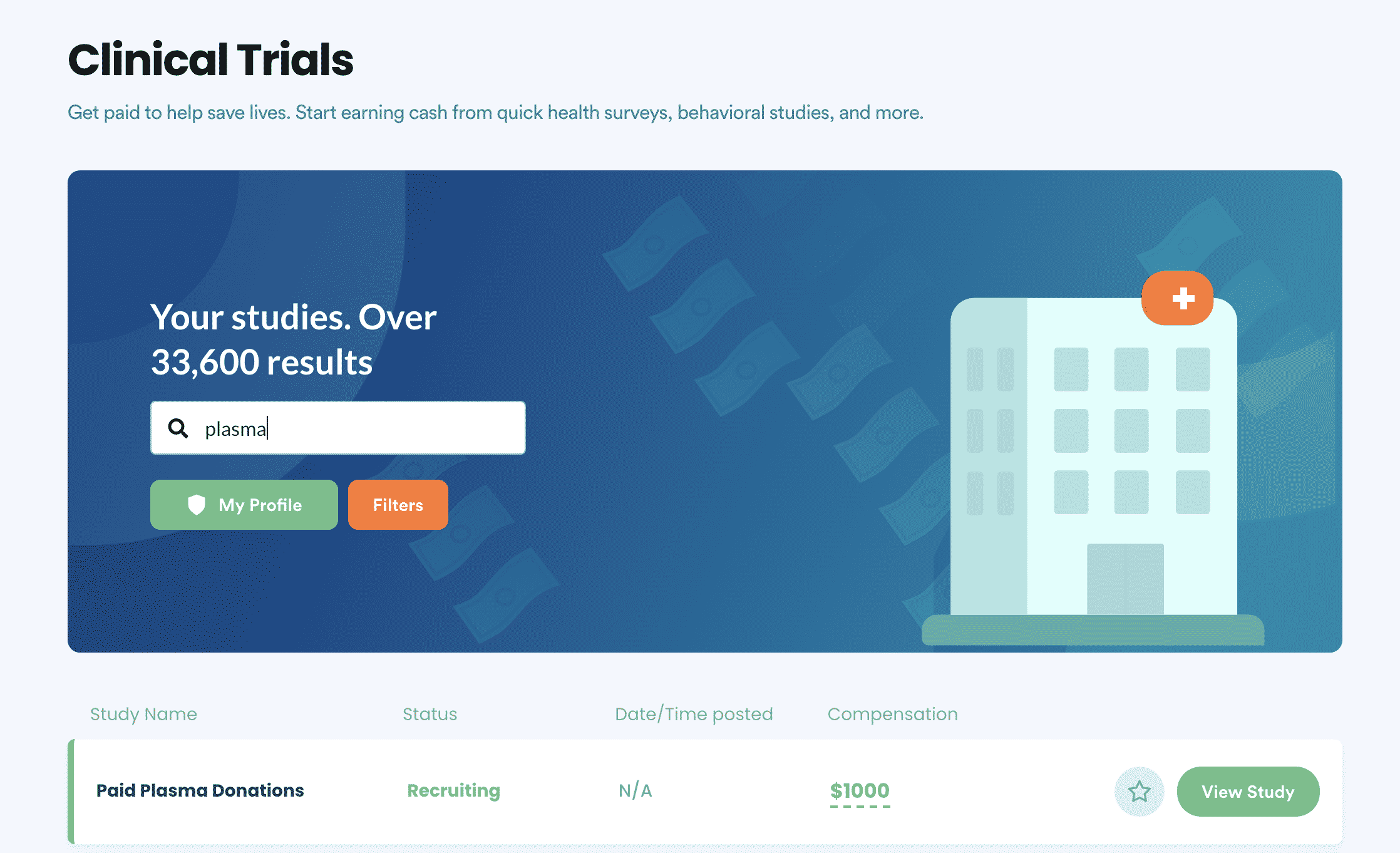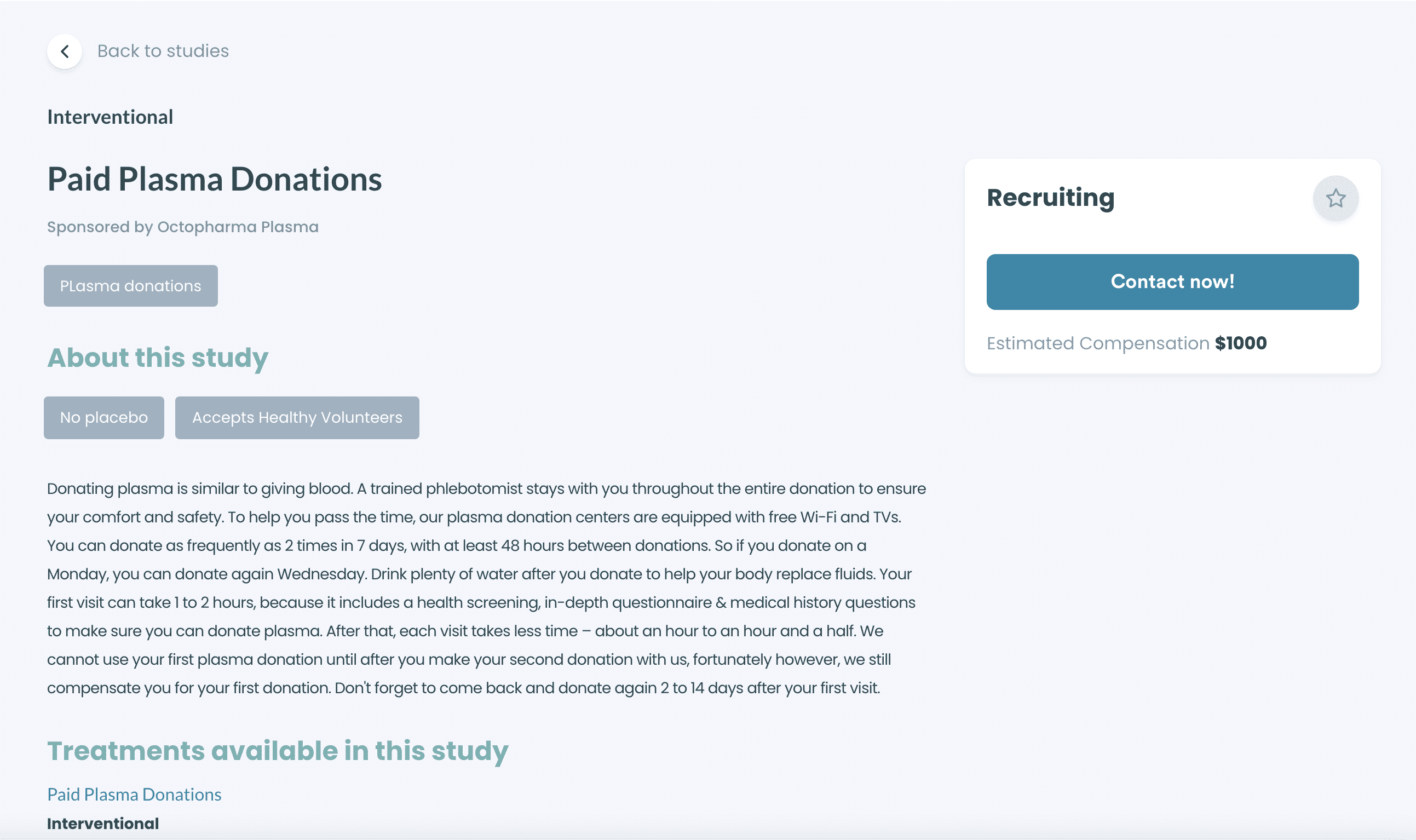How You Can Donate Plasma If You Have High Blood Pressure
Plasma, whole blood, and platelet donations play a significant role in fulfilling the need for blood as well as blood components in various treatment facilities around the world. You might, however, be wondering if . The simple answer is yes, provided your blood pressure is below 180 systolic and below 100 diastolic at the time of donation.
Donating plasma is a safe process, but you should note that side effects exist. To donate plasma, blood is taken from your body and then processed through a machine that separates it and collects the plasma. All the other components in your blood are returned to your body, mixed with salt water to replace the withdrawn plasma. Plasma donation can cause minor side effects such as fatigue, dizziness, and dehydration.
Just like donating blood, you will be completely safe provided that you donate plasma in a certified center. If you're deliberating how to go about the donation when you have , worry no more. At DoNotPay, we've got you covered. We'll help you to go through the plasma donation process seamlessly.
What Is Plasma?
refers to the clear, straw-colored liquid portion of blood that is left when white blood cells, platelets, red blood cells, and other cellular components are removed. It's the largest component of human blood, which comprises about fifty percent and contains salts, water, antibodies, enzymes, and other proteins.
Plasma carries out different functions in the body, such as fighting diseases, blood clotting, and other critical functions. It also acts as a transportation medium for cells and other various substances crucial to the human body.
Why Donate Plasma?
The table below shows some of the benefits of donating blood plasma.
| Plasma can't be synthetically created | Plasma is a crucial material source for a variety of plasma-derived medications that treat as well as prevent life-threatening illnesses, diseases, and conditions. Plasma cannot be synthetically produced or created in the laboratory. If you donate your plasma, you make the above medications possible. |
| Plasma donation saves lives | Plasma-derived medicines are normally used globally to prevent or treat serious diseases in multiple therapeutic areas such as pulmonology, infectious disease, neurology, shock and trauma, hematology, and immunology. By donating your plasma, you help to save as well as improve the quality of life of thousands of individuals. |
| Donating plasma is rewarding | The majority of plasma donation centers appreciate their donors, and so they compensate them for their time and effort. The compensation varies depending on your location. More significantly, by donating your plasma, you give people a chance to enjoy a better quality of life, an unparalleled feeling. You become a hero to countless people around the globe. |
Plasma Donor Eligibility Requirements
Here are the requirements you have to meet before donating plasma:
- You must be at least eighteen years
- Weigh at least 110 pounds (50 kilograms)
- Be in good general health
- Pass a medical screening
- Be void of viruses that can be passed through blood, such as hepatitis and HIV
- Complete a medical history screening
Can You Donate Plasma if You Have a Heart Condition?
In some situations, you can donate plasma if you have had a heart attack or have heart disease, but you will first need to consult your doctor so that they deem you fit for donation.
How You Can Donate Plasma by Yourself if You Have High Blood Pressure
Before visiting a certified plasma donation center, ensure that you:
- Drink a lot of fluids to stay hydrated
- Get enough sleep the night before
- Avoid drinks such as caffeine, which can impact your pulse
Once you have done that, you can make an appointment with the nearest certified plasma donation center. Ensure that you are tested for blood pressure, and it's below 180 systolic and below 100 diastolic, before donating.
You should also notify the center personnel if you recently had surgery, have been tattooed or pierced within the past 12 months, or are taking medication for any condition. The donation process will take about 1-2 hours.
How You Can Use DoNotPay to Become a Plasma Donor if You Have High Blood Pressure
- Search "plasma donations" on DoNotPay and find the nearest donation clinic through our clinical trials product.

- Select the "Contact Now" button to learn more about eligibility criteria, contact the clinic with questions, or sign up for first-time donor bonuses.

- Verify your information and submit your inquiry! DoNotPay will contact the clinic on your behalf and make sure your questions get answered.

DoNotPay Works Across All Companies/Entities/Groups With the Click of a Button
At DoNotPay, we can also help you:
- Donate plasma for money.
- Know how often you can donate plasma, how old you should be for you to donate plasma, as well as how long it takes to donate plasma.
- Know if you can donate plasma after the Covid vaccine, if people with diabetes can donate plasma, and who is not eligible for donating plasma.
What Else Can DoNotPay Do?
We can also help you:
- Manage credit card issues
- Cancel memberships or subscriptions
- Get rid of parking tickets
- Manage bills
And much more!
on our website today to familiarize yourself with more of our services!


